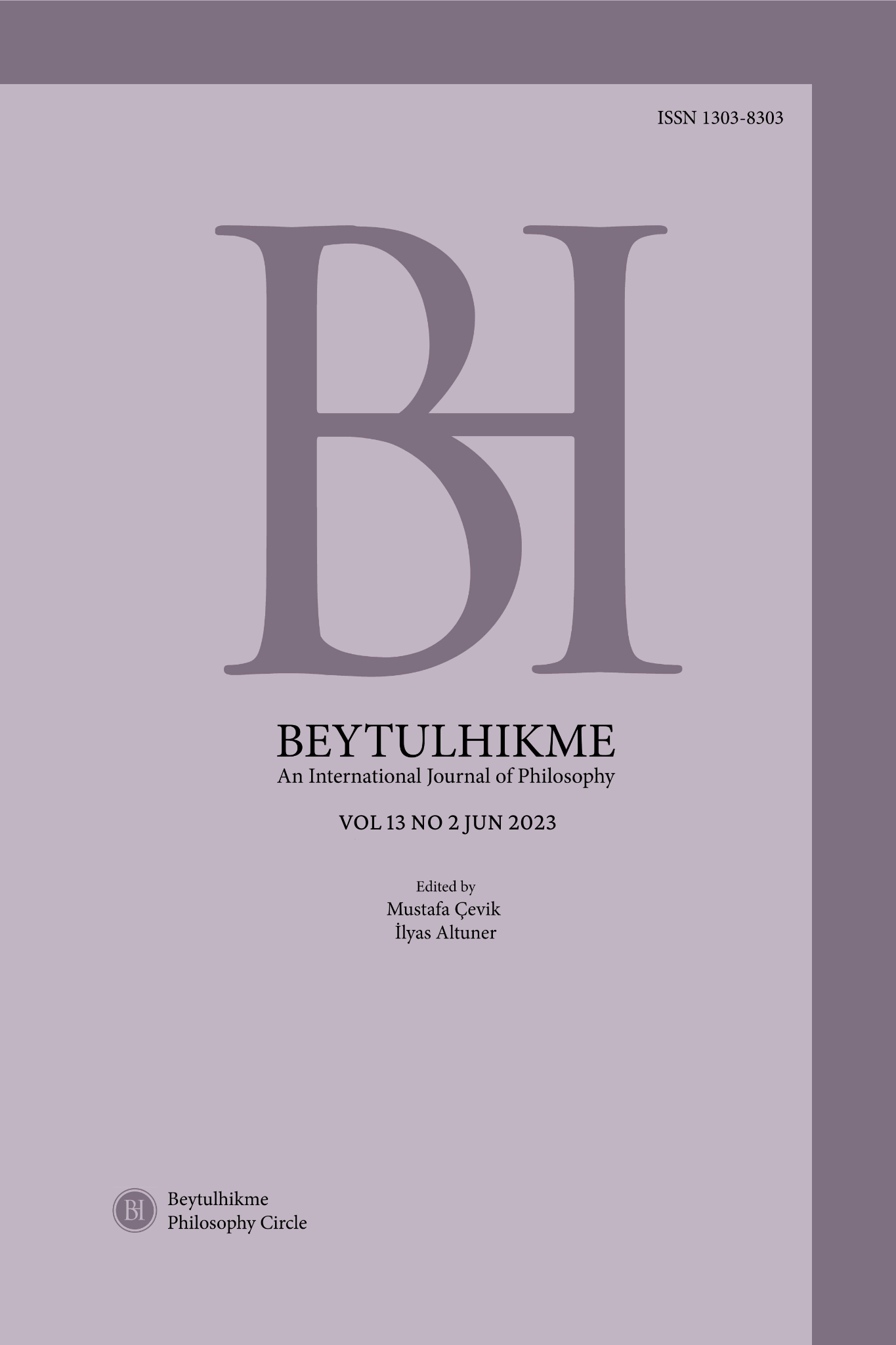Author :
Abstract
Fanon’un düşüncesinde özgürleşmenin boyutlarını ortaya çıkarmayı amaçlayan bu çalışmaya göre, uyuşmazlığa dayanan siyaset özgürleşmenin öncelikli yoludur ve tam olarak bu sebeple Fanon’un düşüncesi özgürleşme siyaseti olarak adlandırılmayı doğrudan hak eder. Uyuşmazlık çıkarmak veyahut Fanon’daki biçimiyle, çelişkilerin farkında olma ve onları aşmak üzere evrenseli hedefleyen eylemlere girişme özgürleşme siyasetinin içeriğini oluşturur. Siyaseti inşa etmek için, öncelikle, kolonyal dünyanın çalışma şeklini anlamak gerekir. Kolonyal dünya sömürenin ve sömürülenin davranışları aracılığıyla işler. Fakat, özgürleşme siyasetinde özgürleşecek olanlar sömürülenler, siyahlar, kolonyal dünyanın çoğunluğunu oluşturan öteki olduğu için, Fanon, özelde siyahların ve genelde de koloni halkının deneyimlerine odaklanır. Özgürleşmeyi ilk elde sömürülenin özgürleşmesi olarak gören Fanon aynı zamanda onu gerçek bir özgürleşme düzlemine doğru genişletir. Bu düzlemde efendi ve özne konumu dünyada artık bulunmaz ve evrensel eşitlik somutlaşır. Fanoncu özgürleşme siyaseti sömürülenlerin, yani tikelin özgürleşmesinden bütün dünyanın, evrenselin, bütün insanlığın özgürleşmesine doğru çok kapsamlı bir alana yayılır. Bu fikirden hareket eden bu çalışmanın ilk kısmı, kolonyal dünyanın mantığına, bu mantığın dayandığı kavramlara, unsurlara ve deneyimlere odaklanır. İkinci kısım ise, özgürleşmenin sömürülen (köle, siyah kişi) ve sömüren (efendi, beyaz kişi) ilişkisinin efendi ve köle arasındaki ilişki olmaktan çıkarılması ve köleliğe bir son verilmesi olduğundan hareketle, kolonyal dünyanın işleme şeklinin kesintiye uğramasıyla görünür olan özgürleşme siyasetine eğilir. Çalışmanın son kısmı da bu kesintiye uğratıcı/yıkıcı etkinliklerin nasıl Fanon tarafından şiddet ile birlikte düşünüldüğünden bahseder. Özgürleşme siyaseti açısından şiddetin şiddet olarak değil, fakat özgürleşme adına, bu mücadelenin sonucunda erişilecek yeni bir insanlık adına işlevselleştirildiğine dikkat çeker. Fanon düşüncesinde özgürleşmenin boyutlarıyla ilgilenen bu çalışma için özgürleşme sürecindeki yıkıcı etkinlikler ve dolayısıyla çatışmaya dayanan bu etkinliklerden biri olarak beliren karşı-şiddet, özgürleşmenin öncelikli yoludur. Bu etkinlikleri açık bir şekilde kapsayan Fanon düşüncesi de bu nedenlerle günümüzde özgürleşme siyasetinin düşüncesi olmanın yanı sıra bizatihi siyasal bir düşünce olarak hak eder.
Keywords
Abstract
According to this study, which aims to reveal the dimensions of emancipation in Fanon’s thought, politics based on conflict is the primary way of emancipation and it is precisely for this reason that Fanon’s thought deserves directly to be called the politics of emancipation. Making dissensus or, as in Fanon, being conscious of contradictions and carrying out activities aiming at the universal to overcome them constitute the content of the politics of emancipation. To construct the politics of emancipation, firstly, it is necessary to comprehend the way of work of the colonial world. The colonial world operates through the behaviors of the exploiter and the exploited. But, since those to be emancipated are the exploited, the blacks as the other who constitute the majority of the colonial world, Fanon focuses on the experiences of the blacks in particular and colonial people in general. Fanon, who sees emancipation primarily as the emancipation of the exploited, also expands emancipation to a real emancipation plane where the position of master and subject no longer exists in the world, and universal equality is embodied. So, it is possible to say that the Fanonist emancipation politics points to a very comprehensive field from the emancipation of the exploited, that is, of the particular, to the emancipation of the whole world, that is, the universal, the whole humanity. Starting from these ideas, the first part of this study focuses on the logic of the colonial world, the concepts, elements, and experiences on which this logic is based. In the second part, regarding the idea that emancipation means removing the relationship of the exploited (slave, black person) with the exploiter (master, white person) from being the relationship between master and slave, and putting an end to slavery, the study touches upon the politics of emancipation that is visible by interrupting the working of the colonial world. In the last part, it mentions how this disruptive activity is considered together with violence by Fanon. From the point of the politics of emancipation, the study draws attention to the fact that violence is not functionalized on its own, but in terms of emancipation, in terms of a new humanity to be achieved as a result of this struggle. For this study, which deals with the dimensions of emancipation in Fanon’s thought, disruptive activities in the emancipation process and thus counter-violence, which stands out as one of these activities based on conflict, is the primary way of emancipation politics. For these reasons, Fanon’s thought, which includes emancipation ways clearly, deserves to be interpreted today as a thought of emancipation politics as much as a political thought.





